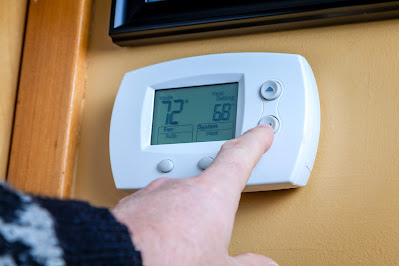The colder months often bring higher energy bills for homeowners. If you live in the north with harsh winters, heating your home may be more expensive than cooling it in the summer. Shorter days, long and dark nights, holidays, and more time off work can also drive up energy usage
By using some of the following winter energy-saving tips, you can increase the energy efficiency of your home and make a big difference in your heating bills:
- Weatherstrip windows and doors to keep heat inside and cold drafts outside.
- Switch to a smart thermostat that you can program. Turning the thermostat down while sleeping and/or when you are away from home can help reduce electric bills.
- Close the damper when not using a fireplace.
- Schedule annual furnace check-ups to ensure efficient use and increase system lifespan.
- Do not block air vents with drapes or furniture.
- Check insulation around the home.
- Adjust hot water heater temperature.
- Only wash and dry full loads of laundry. Partial loads use as much energy as running a full load.
- Insulate water pipes.
- Do not keep your holiday lights on all night; set up a timer to turn them off.
- Unplug unused electronics.
- Use LED light bulbs instead of CFL or incandescent.
- Place rugs on hard floors.
- Let the sun in during the day and close the drapes at night.
- Wear layers of clothes indoors.
- Change the direction of ceiling fans to a clockwise direction, with the fan running at the lowest speed. This pulls cool air up toward the ceiling, which in turn displaces the warm air that rises and collects near the ceiling.
- Close doors and vents in unused areas.
- Change furnace filters at least every 3 months.
- Use space heaters in small or closed-off areas.
- After using the oven, leave the door ajar to allow heat to escape.
Another opportunity to help with high energy costs this winter is the Low Income Home Energy Assistance Program (LIHEAP). This is federally funded assistance that helps keep families safe and healthy through initiatives that support families with energy costs. LIHEAP helps reduce the costs associated with home energy bills, energy crises, weatherization, and minor energy-related home repairs. The program can also help you stay warm in the winter and cool in the summer through programs that reduce the risk of health and safety problems that arise from unsafe heating and cooling situations and practices.
Find out more about what LIHEAP can over you here: https://www.acf.hhs.gov/ocs/programs/liheap.
